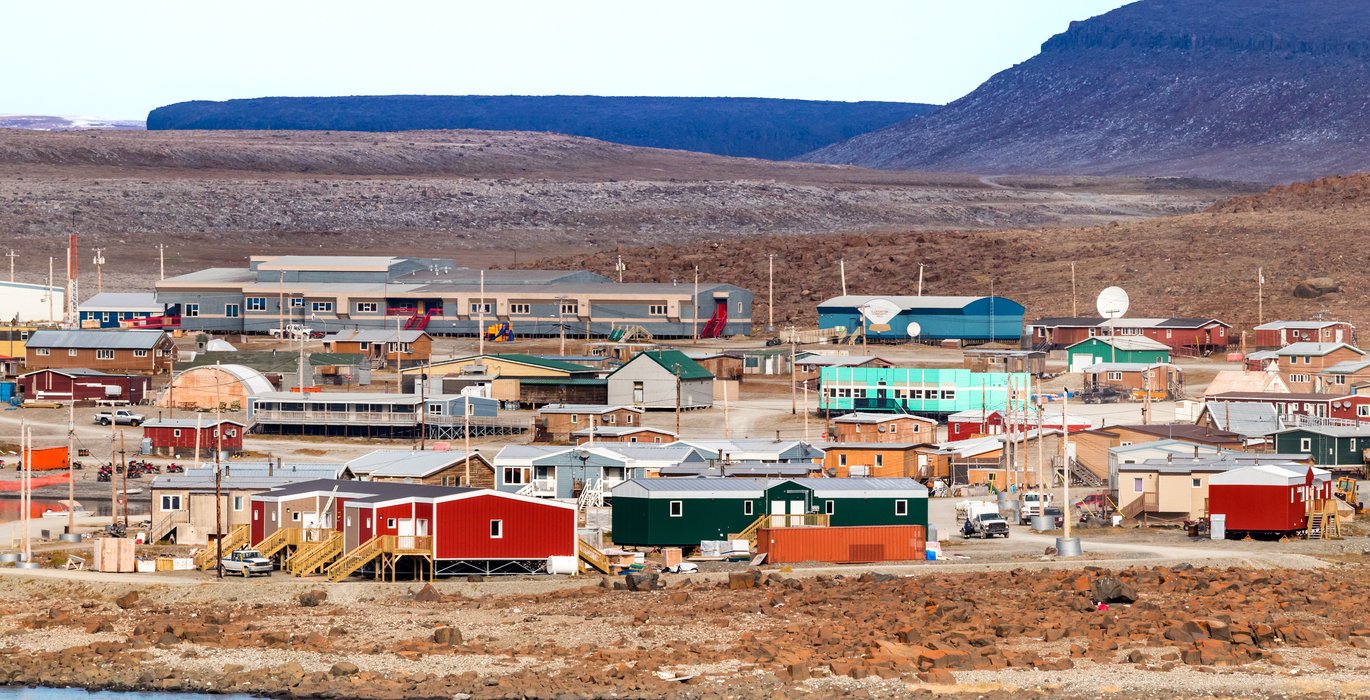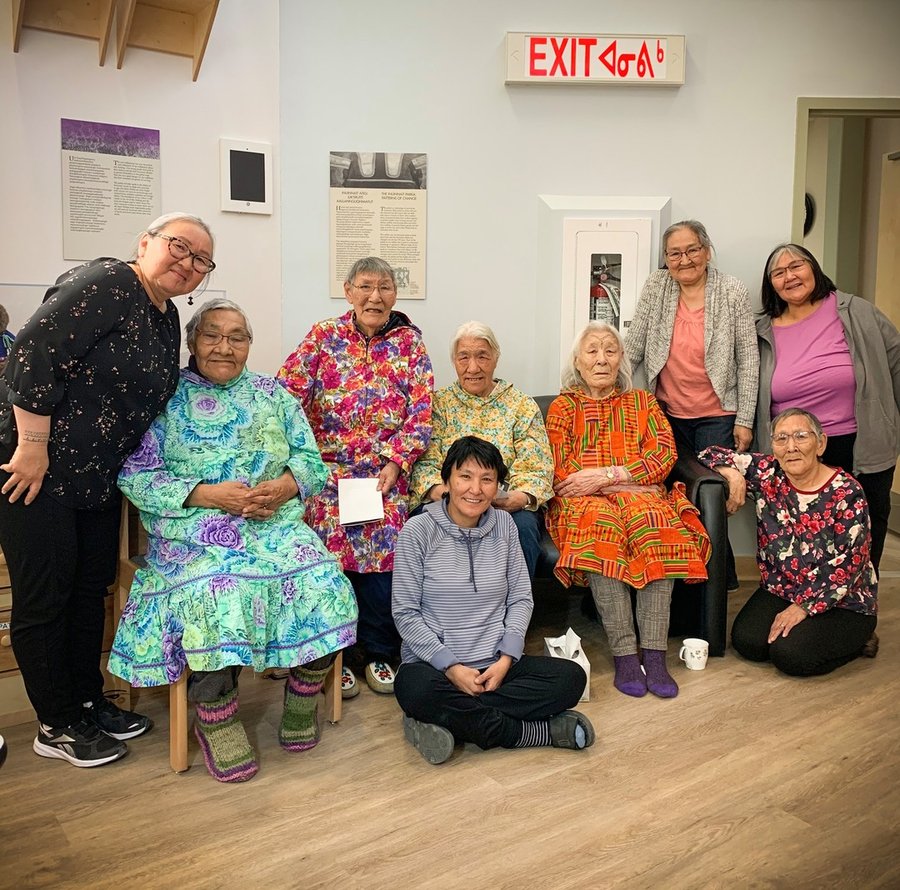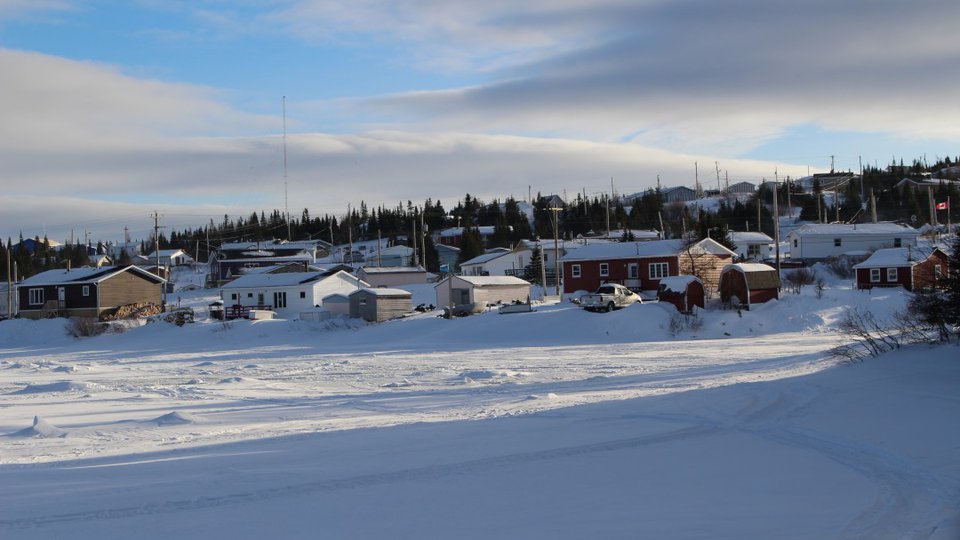
Many Inuit-led organizations across Nunavut are working to uphold Inuit self-determination, rights, and sovereignty through research. By leading research, Inuit are taking control of the types of research projects that occur in their territory, ensuring these projects will benefit Inuit and that any data generated will not be used for unknown - and potentially harmful - purposes.
Nunavut Tunngavik Incorporated (NTI), enforces these promises made under the Nunavut Agreement and oversees the coordination and management of Inuit responsibilities under the Agreement. NTI supports and leads the policy development that guides Inuit research and data governance, including the National Inuit Strategy on Research, the National Inuit Data Strategy, and the Nunavut Data Strategy.
As a non-Inuk researcher who regularly visits Inuit Nunangat (Inuit Homelands in Nunavut), I was eager to hear NTI’s thoughts and perspectives when considering how to uphold sovereignty in research. Staff from NTI taught me about projects that embody Inuit values and sovereignty, and shared their recommendations on how researchers can better educate themselves on expectations and best practices for working on or in the territory.
“Inuit-determined data management can ensure that Inuit communities and organizations have access to the data that affects them and data that comes from their community..."
“Research and research data management have a significant connection with Inuit sovereignty and self-determination” say Sharon Edmunds (Senior Research Advisor), Cheryl Wray (Director), and Ambika Opal (Manager, Nunavut Data Strategy) in the Department of Research, Monitoring and Evaluation at NTI.
“Inuit-determined data management can ensure that Inuit communities and organizations have access to the data that affects them and data that comes from their community, that data are treated in alignment with Inuit values and priorities, and that data are used for purposes and shared with parties only that Inuit agree with.”
This isn’t only true for contemporary research, but also for historical research data repatriation and helping heal from past exploitation and abuses.
When it comes to data generation, management, storage, and usage, NTI staff verify alignment with Inuit priorities, values and principles. They do this by working closely with Regional Inuit Associations, committees, and working groups with representatives from across the territory and Inuit Nunangat. They are currently working towards a data storage plan that will increase NTI’s data accessibility to Inuit. They are also developing a Nunavut Data Strategy while still supporting the development of the National Inuit Data Strategy with Inuit Tapiriit Kanatami and three other Inuit land claims organizations.

Staff and Elders-in-Residence at the Pitquhirnikkut Ilihautiniq / Kitikmeot Heritage Society. (Photo: Pitquhirnikkut Ilihautiniq / Kitikmeot Heritage Society)
NTI leads and participates in several research initiatives, including the Qanuippitaa? National Inuit Health Survey, an Inuit-led-and-determined research program that will collect health data from Inuit communities in Canada. The results are being used to develop policies and programs that support the well-being of Inuit and will inform Inuit organizations with relevant, quality, and self-determined health data.
Initiatives already leading by example
The Qanuippitaa? National Inuit Health Survey is the first ever Inuit-led and Inuit-determined health survey. It is a collaboration between all Inuit regions and has been many years in the making, with planning stages spanning several years and advocacy work beginning in 2012.
A second important NTI collaborative health study is improving tuberculosis screening across the territory (Researchers look to wastewater for early TB detection in Iqaluit (nunatsiaq.com). The results from this study will help inform other TB-related projects. In Nunavut and other Indigenous territories, taking control of how research is conducted and/or leading research are important steps to reclaiming power and asserting sovereignty.
The Aqqiumavvik Society in Arviat is an important example of excellence when it comes to empowering Inuit through community-based and driven research. They created their own Inuit Research Methodology based on Aajiiqatigiingniq, a core value describing discussion and finding solutions by consensus in Inuit Qaujimajatuqangit (IQ). Their current research projects include Aajiiqatigiingniq Healing, where Elders and a community committee share their knowledge for using aajiiqatigiingniq as the core model for local healing programs. The results from this work will contribute to the design and development of the new recovery centre in the territory.
In Clyde River, the Ittaq Heritage & Research Centre uses IQ and new technologies to research the environment. Through connecting research, multimedia, land-based programming, and culture and heritage, they empower community members, uphold Inuit sovereignty and rights, create opportunities for economic development, and increase opportunities for wellness. They are currently undertaking several projects including the Kangiqtugaapik Weather Station Network.
In the Kitikmeot region, the Kitikmeot Heritage Society works diligently to preserve, document, and share Inuinnait history, language and culture. They create educational resources, deliver workshops and cultural programming, and curate exhibits and collections at the May Hakongak Centre in Cambridge Bay and internationally. Elders work on site and various activities and events reconnect local Inuinnait and promote knowledge mobilization to the next generations.
The oral history project at the Society has been ongoing for 25+ years, which documents Inuinnait experiences and way of life to create a permanent record of culture. They are developing digital strategies to “facilitate Inuinnait access, ownership and usability of our traditional knowledge”
These are far from the only examples of exciting Inuit-led organizations creating and leading research in Nunavut. The Kivalliq, Qikiqtani, and Kitikmeot Inuit Associations are very active in this realm, and young Inuit from across the territory are part of the youth-led, non-profit organization called Ikaarvik. They are making huge strides in bridging research and communities, including creating the concept of “ScIQ”, or bridging Western science and Inuit Qaujimajatuqangit.
How can researchers support Inuit data sovereignty?
When asked what kind of advice they would give to researchers conducting their work in or on Nunavut, Edmunds, Wray and Opal suggest that “[Non-Inuit] researchers should be better educated on Inuit Qaujimajatuqangit, ethical ways of working with Inuit, Inuit research methodologies, and Inuit governance structures”.
Some key recommended resources for researchers old and new are the book Inuit Qaujimajatuqangit: What Inuit Have Always Known to Be True, the Circumpolar Inuit Protocols, the National Inuit Strategy on Research, and an article published by members of a non-profit called Ikaarvik entitled “ScIQ: an invitation and recommendations to combine science and Inuit Qaujimajatuqangit for meaningful engagement of Inuit communities in research” (Pedersen et al., 2020).
When it comes to upholding Inuit sovereignty through data management, researchers should be intimately familiar with the National Inuit Strategy on Research and apply it to their practices. They should also keep an eye out for the upcoming release of the National Inuit Data Strategy and Nunavut Data Strategy.
There are licensing processes researchers must go through before beginning any studies in or on the territory, which are all described in the Nunavut Scientist’s Act, Nunavut Wildlife Act, Federal Fisheries Act, Nunavut Act, and National Parks Act (more information can be found here). The application process for acquiring these licenses can take time as overseeing bodies thoroughly review each request, so applicants should apply well in advance of their proposed work.





